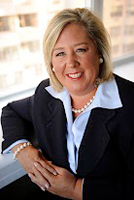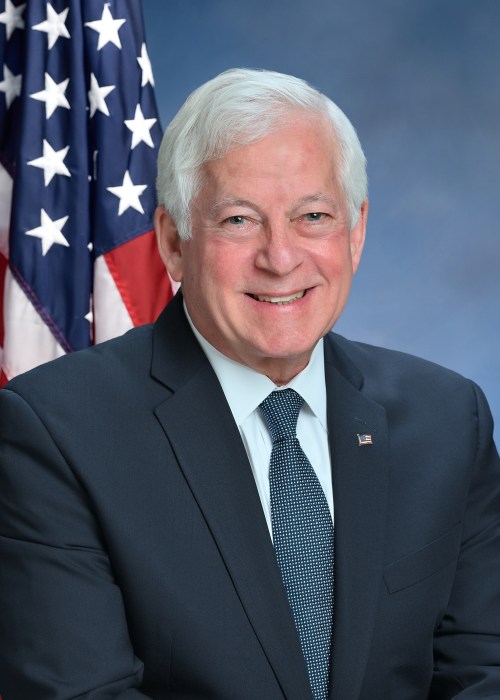The Future Of New York City
In what I suppose was an unusually rash moment, the distinguished columnist Murray Kempton, who not infrequently transmuted newspaper argot into high-brow literature, declared that before Richard Nixon even took the Oath of Office as our 37th president, he was one of the five worst presidents in American history. Such adventurous and ill-conceived thoughts are, of course, not unknown in fits of passion, like when a euphoric Karl Rove stated that George W. Bush’s re-election in 2004 was evidence of a permanent Republican majority.
Likewise, it might be audacious of me to say that Bill de Blasio, even before he has been elected, looks like a harbinger of the somber, unlit nights that tormented New Yorkers with nightmares of fiscal debauchery and anarchy. I was born in one of the city’s most famous boroughs and spent my early childhood there. I feel about the great city as one feels about mother: You eventually move away but you never stop loving her.
While I was never enamored with Mike Bloomberg’s leadership, which I thought steadily declined after his first term, there was no denying he was an astute manager, had a penetrating understanding of the budget and was a rationalist in the measures needed to maintain law and order. It was enough to sustain me amid his embarrassing nanny proclivities and his failure to negotiate new contracts for unionized city employees, the latter spelling opportunity for a more liberal, public sector oriented mayor and big trouble for the taxpayer.
A de Blasio Mayoralty (likely since he leads his opponent Joe Lhota by 50 points) may well have me begging for a return of Mother Bloomberg and his cache of bromides to dispense to his loyal subjects, too dumb to know what’s good for them. De Blasio has a way of couching his concern for the poor in almost sacramental language. He may indeed have a sympathetic vein for the oppressed; he certainly empathized with the Sandinistas who were promoting militant communism back in the 1980s. Were such allegiances a youthful indiscretion? Perhaps, we were all young once, although I don’t ever recall wanting to embrace Daniel Ortega and his Hammer and Sickle revolutionaries in South America.
But since foreign policy is not usually part of the agenda for the occupant of Gracie Mansion, let us peek at his domestic philosophy which appears wholly redistributionist. The poor are struggling, says de Blasio, which is undoubtedly axiomatic since the nature of penury is to struggle. He is correct that there are more people struggling with poverty in New York today than ever before. Not surprising either, since five years after the financial meltdown the economy is
still treading water.
What I find most troubling is how de Blasio responds to the city’s entrenched and growing indigence. He never asks the salient question: What is the cause of this nagging, growing and perpetual inequality? Hence his hackneyed, progressive view that whatever plagues the city, it is nothing the largesse of government can’t cure. But this solution does not square with the causes of this pauperism, which are the usual suspects: broken families, a fragile labor market for low skilled workers, the failure of public schools and a burgeoning immigrant population that does not speak English. There are measures that can be taken to ameliorate these conditions; none of which unfortunately could be alleviated by his current plan of targeting the rich who employ much of the city’s immigrant population either directly or indirectly.
There are steps that can be taken to brighten the future of the children of the poor, such as improving the quality of schools by allowing more choice in education. But de Blasio’s cozy relationship with the city’s powerful teachers’ union will almost certainly railroad such a worthwhile objective. De Blasio’s almost sacramental regard for the poor is rhetorically affective, but his notion of an omniprovident government displays a philosophical slovenliness that is bound to nurture injudicious public policy regarding jobs, schools and Gotham continuing to be a lodestone for undocumented immigrants.
His criticism of “Stop and Frisk,” the best thing to happen to law enforcement since Wyatt Earp rode into Tombstone, percolates with racial overtones. This is abetted by his multicultural background (he is married to an African-American woman) and has given him creditability with the minority community, which supports his candidacy overwhelmingly. Admittedly, the semantic formulation “Stop and Frisk” is too stark for today’s civil discourse and I would subscribe to Fox
News host Bill O’Reilly who suggested, not unpersuasively, that it should have been called “Encounter and Explain.” But the cat is already out of the bag and what we should focus on, and indeed what has been focused on, is how much safer this practice has made the city, especially for minorities who are disproportionate victims of violent crime.
De Blasio’s all but certain ascension to N.Y.C.’s mayoralty brings unwelcome flashbacks of the law breaking ‘70s and ‘80s, and I’m desperately afraid that the world’s greatest metropolis will lose some of that hard-won security that today makes the city such a vital and welcoming place. If the future has a silver lining, it is that the burden of governing imposes discipline by eschewing political hyperbole and winnowing out ideological fairy tales. Reality must be dealt with, more or less, on its own terms. Let’s hope that the poor judgment of de Blasio’s younger days has been replaced by a more sober and judicious outlook, one that acknowledges the lessons of the past and the courage to act upon them.

























